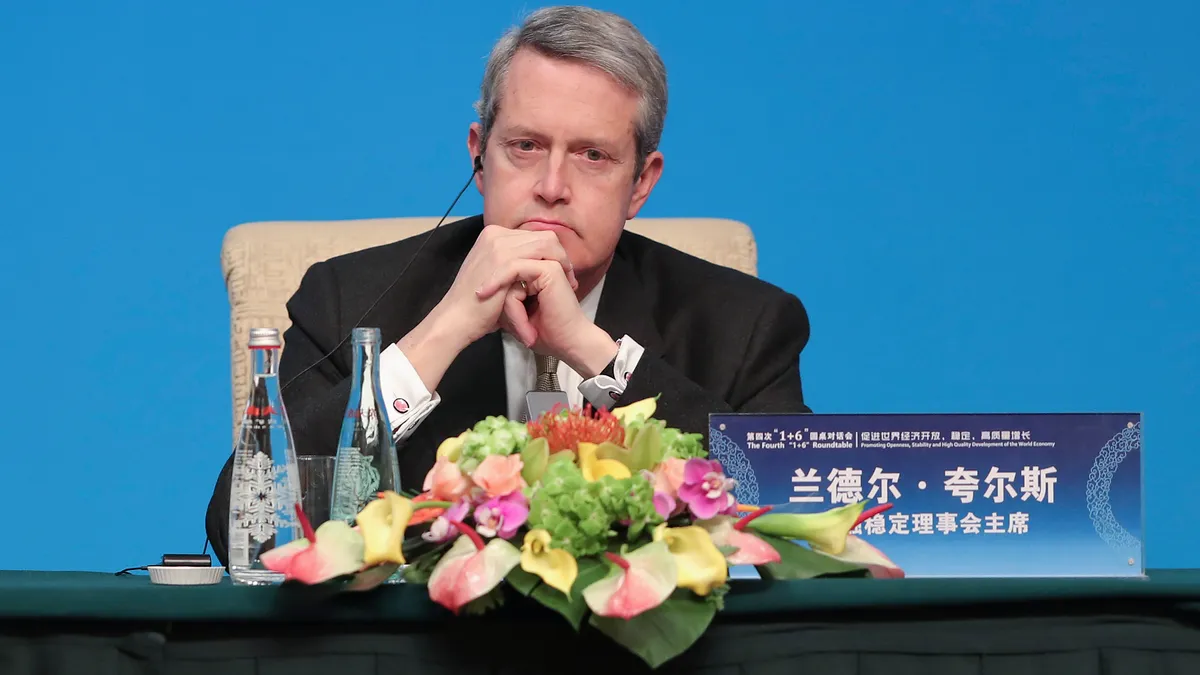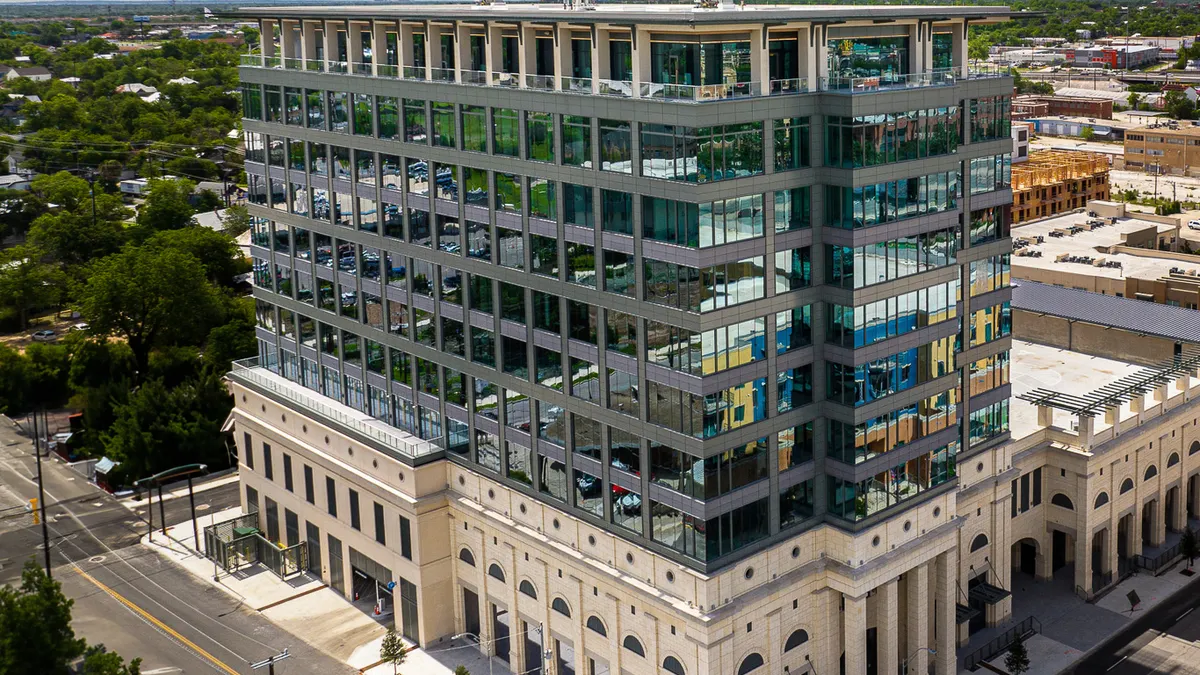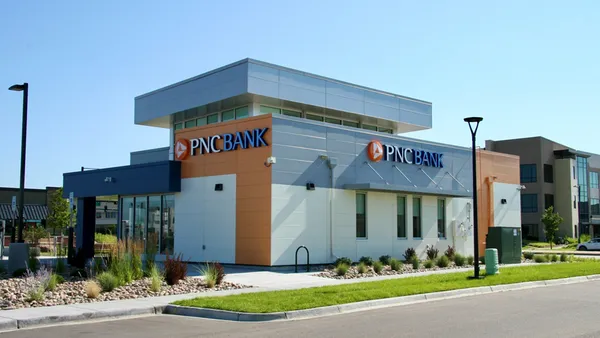Randal Quarles, the former Federal Reserve vice chair for supervision, is linked to one of several institutions seeking a master account with the central bank.
Currency Reserve, along with more than two dozen institutions seeking access to the Fed’s master accounts and payment services, is listed on the central bank’s master account database, which was made public for the first time this month.
Quarles and his firm The Cynosure Group are investors in Currency Reserve, but the former Fed board member won’t have an operational role at the bank, according to the Financial Times.
Currency Reserve won’t make loans or take deposits. Instead, it plans to sell and deliver dollars primarily to overseas customers, the publication reported.
A Fed master account would lower the firm’s costs since it would be able to draw cash directly from the Fed, according to Currency Reserve’s company description.
Quarles, a Trump-era appointee who left the Fed at the end of 2021, is partnering with Vivek Tyagi, a former risk officer at Silicon Valley Bank, one of several regional institutions that collapsed this year. Tyagi joined Currency Reserve as CEO last year, according to his LinkedIn profile, after a three-year stint as a managing director at Goldman Sachs. Tyagi worked at SVB in 2018 and 2019.
As Currency Reserve awaits approval from the Fed, Quarles’ ties to the central bank may reignite a debate around conflict of interest among former Fed members.
Sen. Cynthia Lummis, R-WY, implied last year at a nomination hearing for Sarah Bloom Raskin, a candidate to fill Quarles’ former role, that Raskin used her influence as a former Fed governor to help the fintech Reserve Trust gain a Fed master account.
The Federal Reserve Bank of Kansas City denied Reserve Trust’s first application for a master account in June 2017, a month after Raskin joined the fintech’s board.
Lummis said the fintech was granted a Fed master account after Raskin called the Kansas City Fed in August 2017 about the denied application.
Raskin eventually withdrew her nomination after failing to garner sufficient support in the Senate.
“After the kerfuffle surrounding Sarah Bloom Raskin (a former Fed Board member) and Reserve Trust's mysterious master account, it would raise a few eyebrows for the New York Fed to open an account championed by a former Board member,” University of Alabama law professor Julie Hill tweeted last week.
Dennis Kelleher, head of consumer advocacy group Better Markets, said Currency Reserve’s application would be reviewed by Fed staff who used to be Quarles’ subordinates.
“It smacks of the use and abuse of the revolving door, though whether that is what Randy is doing, I don’t know,” Kelleher told the Financial Times.
Currency Reserve submitted its application in August 2022, and is designated as a Tier 3 institution, according to the master account database. That means the firm will be subject to the Fed’s highest level of scrutiny.
Tier 3 firms are not federally insured and not subject to prudential supervision by a federal banking agency at the institution or holding company level, according to the Fed’s tiered review framework, which it unveiled last August.














